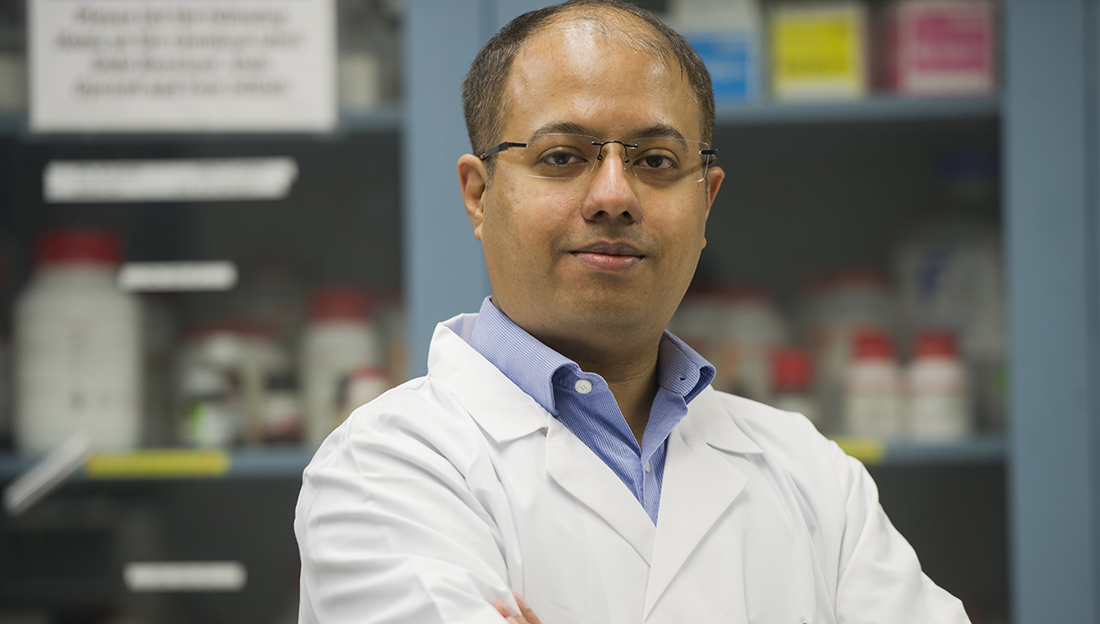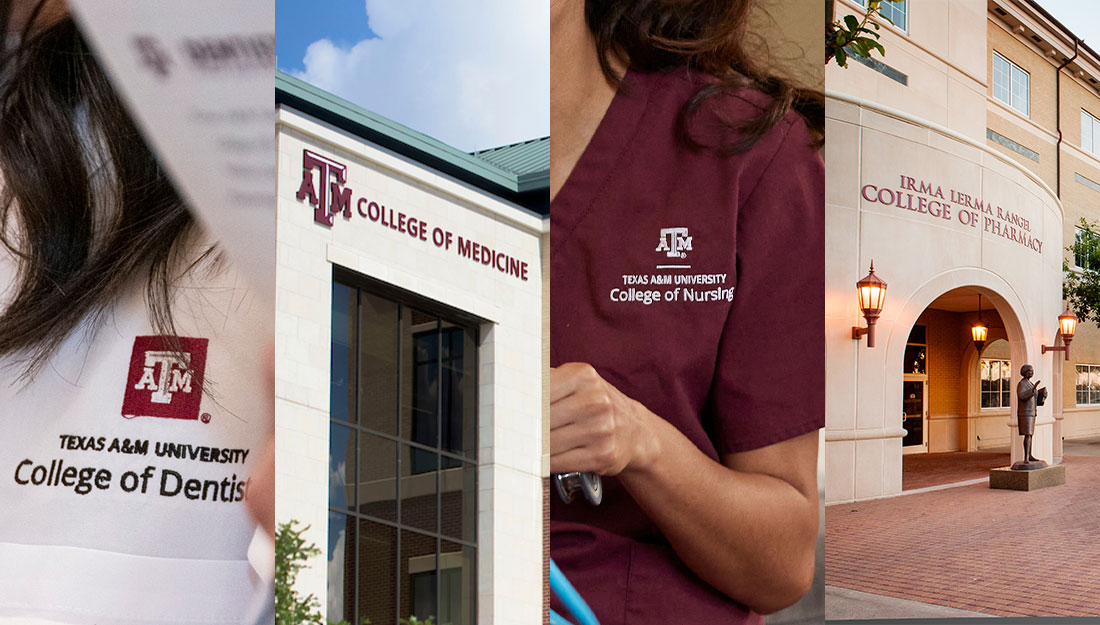- Jennifer Fuentes
- Dentistry, Research, Show on VR homepage
NIH fellowship opens the door to academic, industry opportunities

It was during his dental training in India that Dr. Priyam Jani was first drawn to the research field.
“During my time in dental school, I got to learn in detail how the human body works,” explains Jani, who received his doctorate in the oral biology program at Texas A&M College of Dentistry in December 2016. “The development process from an embryo to a fully grown adult is fascinating. Our teeth transform from a soft tooth bud to mineralized tissue and become the hardest structures of our body.”
At the same time, delving into the study of disease processes opened Jani’s eyes to a disconnect between dentistry and research: “I realized that a lot of cellular mechanisms involved in these processes are not well understood to date,” Jani says. “I became curious to learn the molecular process of development and became inclined toward research.”
After receiving his dental degree from Pravara Institute of Medical Sciences and practicing dentistry in Mumbai, India, for three years, his curiosity got the better of him, and he applied for and was accepted into the oral biology doctoral program at Texas A&M College of Dentistry. Working in the lab of Biomedical Sciences Professor Dr. Chunlin Qin, he delved deeper into this fascination, exploring the proteins involved in the formation of dentin, specifically one known as DSPP, or dentin sialophosphoprotein. Mutations in this protein can lead to congenital conditions that result in weakened dentin, and with it, a high susceptibility to tooth decay and sensitivity.
Just as Jani was preparing to receive his Ph.D., he learned he would carry this exploration even further with the Dental Clinical Research Fellowship at the National Institutes of Health – National Institute of Dental and Craniofacial Research in Bethesda, Maryland.
Starting in July 2017, he’ll work under two NIH mentors. Dr. Janice Lee, clinical director of the fellowship, is heading up a study to better understand the dental and craniofacial manifestations of Loeys-Dietz Syndrome, a connective tissue disorder. In the basic research realm, Jani will work closely with Dr. Marian Young to study congenital craniofacial abnormalities associated with mutations in the biglycan gene. It’s known that this gene results in structural issues in the head and face, but what isn’t common knowledge is the specific dental problems that result.
“Dr. Jani is special because he has a double degree; he has a D.D.S. and a Ph.D.,” says Young, principal investigator and chief of the molecular biology bone and teeth section at NIH, who has been with the organization since 1981. “Those are very coveted; they’re hard to get. He’s already at the top tier for that. I’m very excited because I work on preclinical research, so this gives me the opportunity to work in a broader direction with translational research.
“Dr. Jani has the extra benefit of being co-mentored with the clinical director, Dr. Lee. She will advise on the translational clinical aspects of the project while I will focus on the basic research.”
The arrangement should be a win-win for everyone involved, Young says, mentioning how the additional research training will help Jani embark on his own research pathways by the conclusion of his fellowship.
Jani’s selection for the NIH-NIDCR fellowship immediately after receiving a doctoral degree is not a common occurrence, says Qin, who has worked with him in the lab for more than four years.
“Usually, a person works for a few years as a postdoc after graduation from a Ph.D. program and then becomes a fellow at NIH-NIDCR,” Qin says. “The fact that Priyam was accepted into a very competitive program is another indicator that our college’s oral biology program produces high-quality Ph.D. graduates.”
Young says Jani will likely stay on board at NIH for at least three years. After research has concluded, there’s more than one possible road ahead.
“This is a very unique fellowship where I will get training in clinical research as well as get to enhance my basic research skills,” Jani says. “This fellowship opens doors to academic as well as industry career opportunities.”
Media contact: media@tamu.edu


